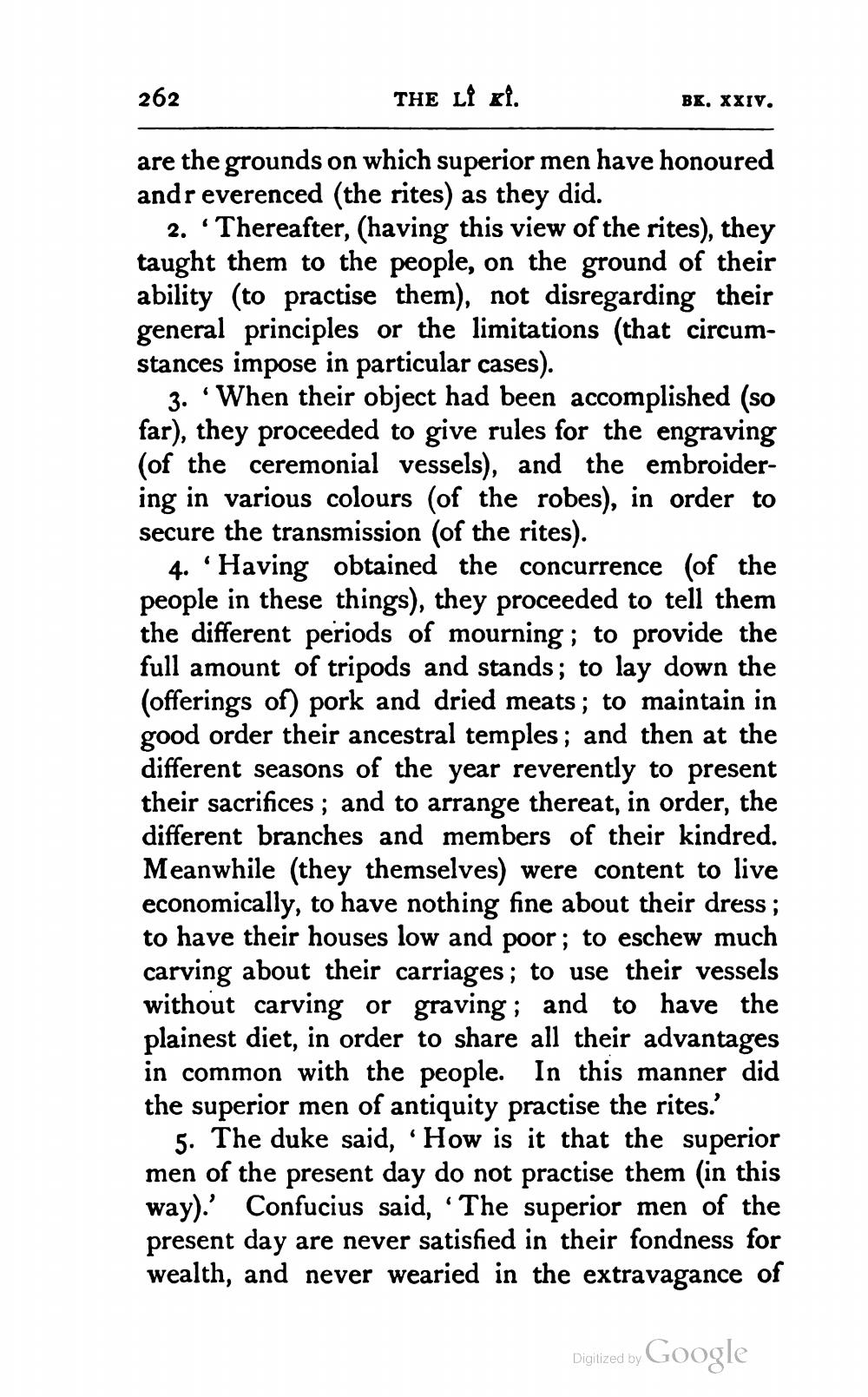________________
262
THE LÎ ki.
BK. XXIV.
are the grounds on which superior men have honoured andr everenced (the rites) as they did.
2. “Thereafter, (having this view of the rites), they taught them to the people, on the ground of their ability (to practise them), not disregarding their general principles or the limitations (that circumstances impose in particular cases).
3. When their object had been accomplished (so far), they proceeded to give rules for the engraving (of the ceremonial vessels), and the embroidering in various colours (of the robes), in order to secure the transmission (of the rites).
4. 'Having obtained the concurrence (of the people in these things), they proceeded to tell them the different periods of mourning; to provide the full amount of tripods and stands; to lay down the (offerings of) pork and dried meats; to maintain in good order their ancestral temples; and then at the different seasons of the year reverently to present their sacrifices; and to arrange thereat, in order, the different branches and members of their kindred. Meanwhile (they themselves) were content to live economically, to have nothing fine about their dress; to have their houses low and poor; to eschew much carving about their carriages; to use their vessels without carving or graving; and to have the plainest diet, in order to share all their advantages in common with the people. In this manner did the superior men of antiquity practise the rites.'
5. The duke said, “How is it that the superior men of the present day do not practise them (in this way). Confucius said, The superior men of the present day are never satisfied in their fondness for wealth, and never wearied in the extravagance of
Digitized by Google




